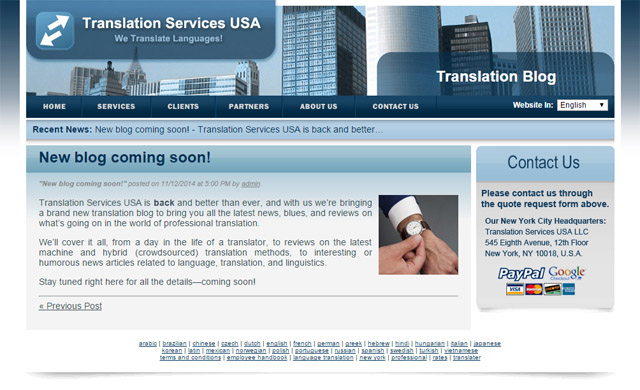How NOT to Take Your Ecommerce Business Global
Web content administration is basic in your home nation. Your ecommerce website generally does everything for you other than compose the material itself. However when expanding right into foreign markets, you’ll be confronted with technological choices you have actually never ever faced before. Suddenly, content administration goes from simple to complex.

Before you determine to market overseas, ensure you acquaint yourself with the technological do’s and don’ts of global ecommerce.
Do: Make it straightforward
Decreasing complexity is a vital challenge when using multi-language and multi-region items. Together with product info in several languages, you have countless ad campaigns, a number of shipping taxes and also various users. So anywhere you can, focus, reduce as well as prevent complexity.
Do: Understand structured information vs. localization memory
Structured data is an extra detail that can be included in the HTML markup of a page that helps internet search engines recognize exactly what’s on it. Structured information can likewise be used to label material that needs localization, making it straightforward for your localization solution to determine and also localize content quicker. Companies like Across and also Acrolinx offer tools that allow you to develop material at scale, which minimizes localization time.
Translation memory (TM) gathers all previous localizations expressions and also sentences and could be made use of to immediately localize brand-new material, so you never ever have to localize the exact same sentence two times. The even more you accumulate your TM, the much faster you can complete brand-new localizations– yet it’s not foolproof. This auto-localized content still requires a human editor.
Do: Possess your own content
Some firms, when they go global, pick the proxy strategy. Controlled proxy solutions for localizations could be practical for smaller sized ecommerce websites since they provide an easy “plug and play” remedy. Nonetheless, proxy servers do not allow you own your personal content, which could be troublesome for bigger ecommerce websites with hundreds or thousands of items. If your provider fails or you move to another system, you may encounter a significant issue.
Do: Style your internet site with the potential for several languages
Allow your internet developers recognize that going worldwide is an objective initially. This allows them understand to earn sure buttons, navigating as well as food selections can accept longer “strings.” As an example, German and Russian strings are generally considerably longer compared to English, meaning your navigation might take up to 25% even more space. In contrast, Japanese and also Chinese strings might be dramatically much shorter. Always layout with dynamic message where feasible– converting and updating message within pictures is a much more complicated process.
Do not: Make use of manual file handling
With an API option, localization of your product material is something you could do within your normal workflow. A localization API can be totally integrated into the management location of your ecommerce site, giving you the control to order and also take care of localizations of product descriptions. This way, you can lessen data handling between you and also your localization solution. This minimizes error and also handbook effort, and also allows you to effectively handle web content at much bigger scales.
Do not: Develop your very own localization tools
Because the initial problems that have to be solved look easy, several interior advancement groups try to make basic localization tools as opposed to counting on exterior services. Typically this just delays problems for the future. As your localization needs expand, self-made tools either don’t scale, or call for increasingly more focus from the advancement group. Instead, make use of relied on third-party devices and also APIs.
Do not: Become a localization company
Smaller ecommerce sites can usually handle localization into a couple of languages by using freelancers or neighborhood nation supervisors to localize much of their web content. However, once they come close to more than three languages, the overhead of managing these procedures could transform the business into exactly what looks like a localization company. For most companies, this is not their core expertise or their business vision. Similarly, larger ecommerce merchants may have the ability to attain some expense decreases by dealing with localizations internally. At the same time, they may lose versatility, range, as well as the most effective practices that localization firms possess.



